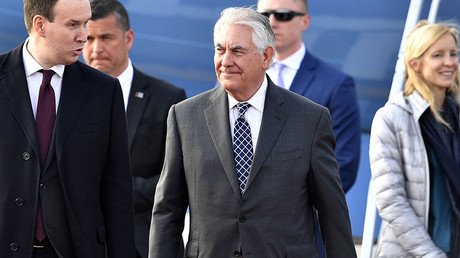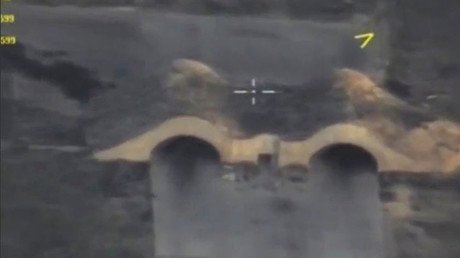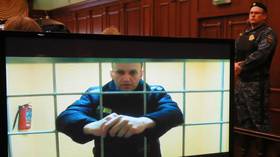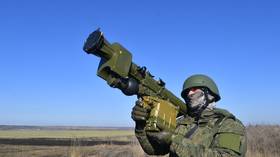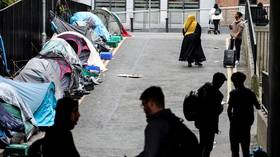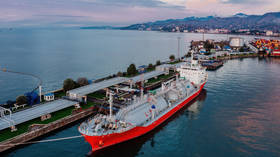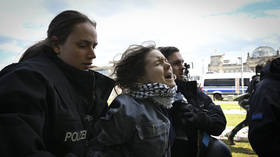‘No talk after Syria strike would’ve been detrimental to US & Russia’ – US ex-commander Kirk Lippold
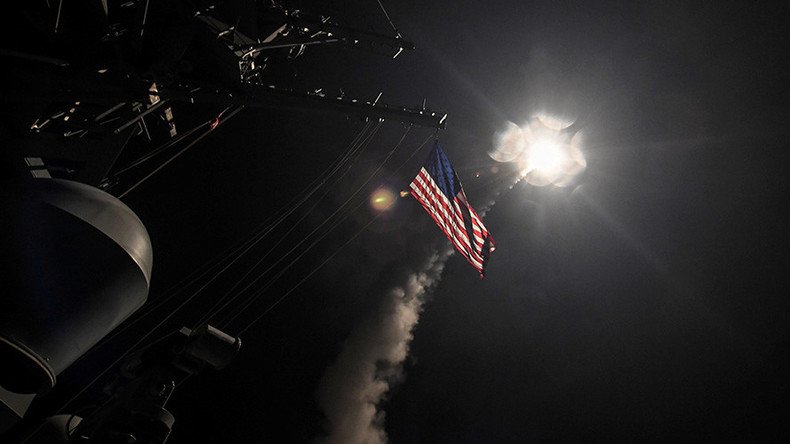
RT spoke to Kirk Lippold, once the commanding officer of the USS Cole, who explained why the US-Russia meeting after the strikes in Syria was essential and what he thinks the aim of the latest steps by the Trump administration in the Middle East was.
Lippold, who commanded the USS Cole destroyer in 2000 when it was attacked by Al-Qaeda suicide bombers, spoke about the recent meeting between Russian Foreign Minister Sergey Lavrov and US Secretary of State Rex Tillerson. The official was in fact very hopeful about how the meeting went and what the outcome could be.
“Despite the obviously tense introduction that Secretary Tillerson and Lavrov had, where there was no eye contact made on purpose by Secretary Lavrov, the two of them sat down, and once the initial posturing for the cameras was all said and done, the people that didn’t really need to be at the meeting left, [they] could start getting down to the real facts, the real basis and start discussing: what about the chemical attack? What are the objectives of each country, both in Syria and for the region?” he told RT’s Oksana Boyko on the Words Apart show.
“I think there were some very good discussions. These had to take place following the strikes; to not do them would have been more detrimental to the interests of both countries in the region,” Lippold said.
On April 4, Syrian President Bashar Assad was accused by Washington of carrying out a chemical weapons attack on the town of Khan Shaykhun in the Idlib Province. Just days after the attack, Trump ordered 59 Tomahawk missiles to be fired at a Syrian airbase in Homs.
Russian Foreign Minister Sergey Lavrov referred to the US missile strike on Shayrat as “an act of aggression, which blatantly violated the principles of international law and the UN Charter.” He also called on Washington and its allies to respect Syria’s sovereignty, adding that the attack has “serious ramifications not only on regional, but also global security.”
Lippold was supportive of the US strike, saying that while the Obama administration drew red lines and did nothing of substance to enforce them, Trump’s “swift and forceful” response was merited.
“It was proportional, it was appropriate and it’s done,” he said, adding that he hopes it sent a clear signal to Assad that a repeat of such incidents will not be tolerated.
The former commander said that Syria has long represented a puzzle in the region for the US government, and explained why.
“This was a military objective to be achieved, the political objective goes to a larger strategy, and if you look at it, Syria has always been a bit of a conundrum for the US. Through successive administrations, there has always been that bubble there: we haven’t touched Syria, we’ve engaged with other countries in the region, whether it was Lebanon, coordination with Jordan. The US has always been engaged in that region and we’ve always tried to be proactive to keep it stable. Because let’s face it – we want to make sure that the world’s economies are not affected should oil get cut off.”
Asked about the numerous civilian casualties that occur whenever the US-led coalition is involved, Lippold emphasized that “the US takes extreme pains to minimize [them].” But when RT’s Oksana Boyko mentioned the hundreds of civilians’ deaths in Mosul, Iraq, he admitted that no war is without setbacks.
“That isn’t to say that in any war, there won’t be mistakes.”
In October 2000, the USS Cole destroyer, under Lippold’s command, was attacked by Al-Qaeda suicide bombers in Yemen’s Aden port, where the ship came to refuel, with 17 people killed and 37 wounded as a result. While the US review board concluded there was no one to take to account for the losses, Lippold was eventually denied a promotion.
Asked about the families of those who died back in 2000, Lippold said: “They are very frustrated that we’ve gone on 17 years now, and still have to see justice for those sailors who were killed in that attack.”
